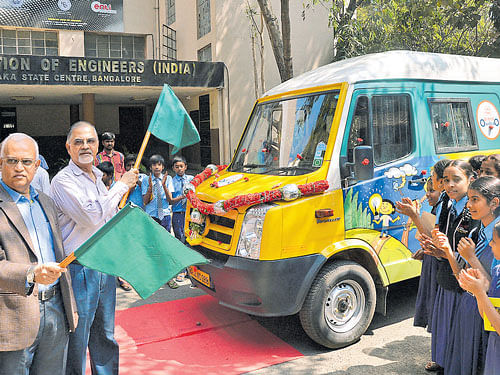
Stressing the importance of introducing newer pedagogies in government schools, Infosys Science Foundation (ISF), in association with Agastya International Foundation (AIF), has set a target of training as many as 6,000 science teachers from government schools across the State in about three years.
“There are about 20,000 science teachers in government primary and high schools in Karnataka and we want to reach out to at least 25 per cent of them in the first phase of the Teachers’ Training Programme. We have trained about 560 teachers in the last nine months,” K V Sai Chandrasekhar, CEO of Agastya Foundation, said here at the launch of a Mobile Science lab on Tuesday. He said teachers would be trained by experts for five days at two locations in the State with focus on adopting new pedagogies.
“The traditional practices of lecturing and reading is inefficient. Hence, we want to emphasise on constructive methodology, which prioritises experiential and peer-to-peer learning. This is more on the style of teaching rather than the content part of it,” he said, hoping to include more locations in the future to train teachers.
Mobile labs
Earlier, Srinath Batni, trustee of ISF, flagged off a mobile lab, which is designed to spur curiosity and creativity among students, thus making learning an interactive experience.
Chandrasekhar said the mobile lab would visit different schools across the State. There would be two trained instructors in the van, besides science models, he said.Batni said the programme had been launched to instil love for science in students at a young age. “It’s to eliminate the vacuum in our education system that is caused by insufficient infrastructure and inadequate access to experiential learning. Schools need to provide functional labs to breathe life into science education,” he said.
Deccan Herald is on WhatsApp Channels| Join now for Breaking News & Editor's Picks